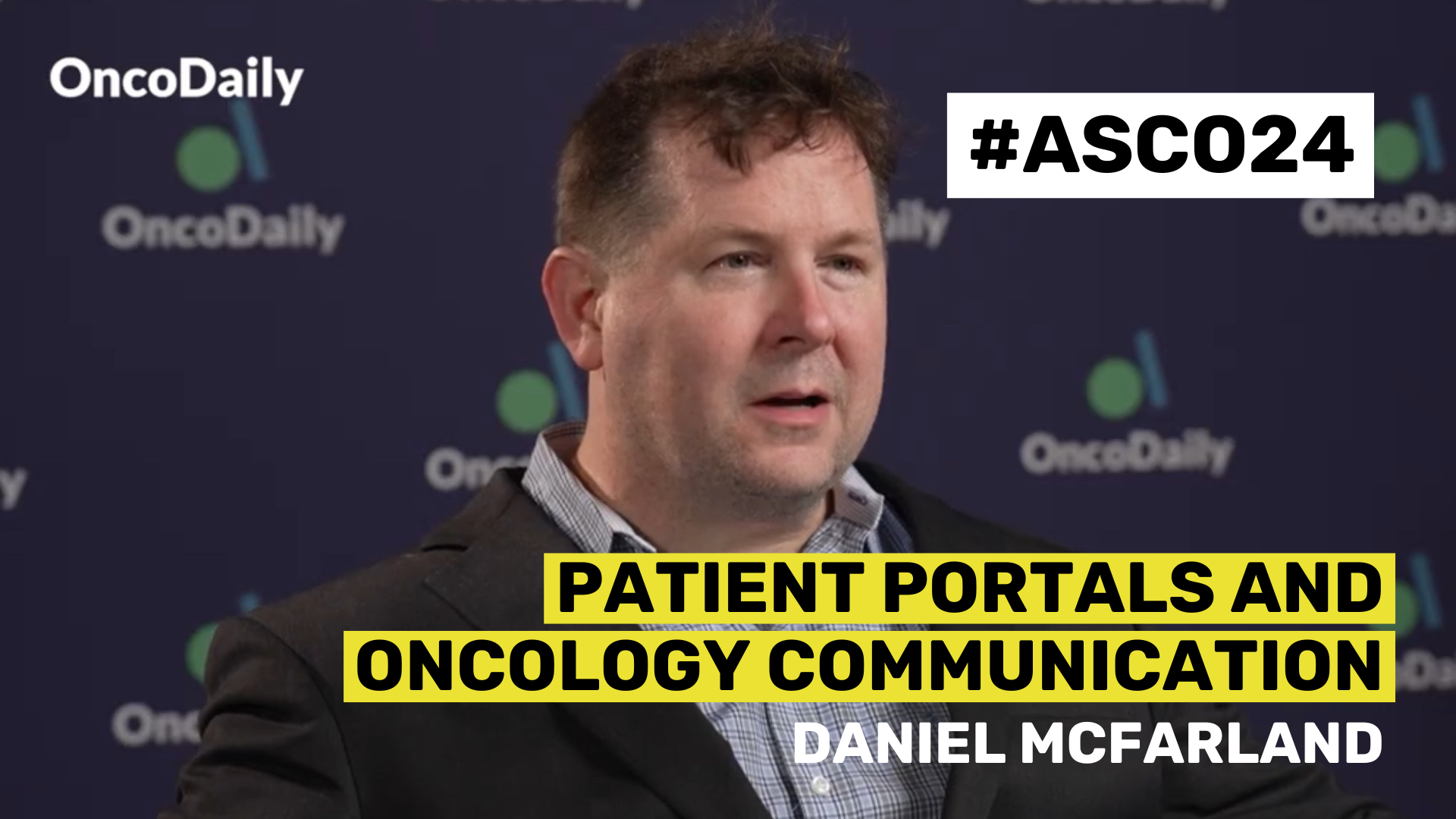The American Society of Clinical Oncology (ASCO) Annual Meeting is one of the largest and most prestigious conferences in the field of oncology. This year, the meeting took place from May 31 to June 4 in Chicago, Illinois. The event gathers oncologists, researchers, and healthcare professionals from around the world to discuss the latest advancements in cancer research, treatment, and patient care. Keynote sessions, research presentations, and panel discussions are typically part of the agenda, providing attendees with valuable insights into emerging trends and innovations in oncology.
This year, OncoDaily was at ASCO 2024 for the first time covering the meeting on-site. We had the pleasure of interviewing researchers who summarized the highlights of their work.
In this video, Dr. Daniel McFarland, director of psycho-oncology at the University of Rochester, shared insights on the impact of patient portals on oncology communication, shaped by the 21st Century Cures Act.
Hi, I’m Dr. Daniel McFarland. I’m the director of psycho-oncology at University of Rochester. I’m a psychiatrist and a medical oncologist, and I had an educational symposium on the patient portal and its uses and the ways in which it challenges communication in basically modern day oncology.
This is all coming about due to the 21st Century Cures Act and subsequently the blocking rule which basically says that not only notes but results from the EMR or EHR are immediately shared with patients and family. And long story short is that we presented the background of the legislation, etc. We had a patient advocate who presented her side of using open notes for actually several years and how she’s found the experience.
We also had a medical oncologist who shared her perspective in terms of what it means for the work burden. And I represented psychiatry and I spoke about the role of trust and communication and the usage of the patient portal. Long story short, essentially, I think that this isn’t necessarily a paradigm shift in communication, but it does put the onus on the medical oncologist or clinicians in general and patients and families to basically think through proactively how they want to engage in communication.
It also puts an onus on clinicians in particular in terms of needing to be prepared in a way that we haven’t been in the past. And that’s important to acknowledge because obviously we’re talking about information that is emotionally laden and sensitive. And so these conversations are happening, that is end of life conversations, changing therapy conversations, interpretation of scans, interpretation of results.
So they’re happening in real time faster than in the past. Bottom line is that I think it is worse. The new sort of form of communication could be dangerous in the sense that it’s a kind of what we used to call truth dumping.
At its best, it works very well to basically enhance shared decision-making. And so obviously it’s here to stay. It is going to be a part of how we communicate with patients and how patients communicate with us.
And overall, in the literature, the little amount of literature that there is suggests that actually people are happy with it. But it does, like I said, put the onus on both the clinician and the patient to discuss ahead of time how they’re going to use the portal. And so admittedly, there’s probably not been a lot of training in this area, and hopefully we’re going to see that moving forward.
I think more is to come, and hopefully research will be forthcoming to help guide us in this really important and actually exciting area of communication and oncology. Thank you very much.
More videos and content from ASCO 2024 on OncoDaily.
